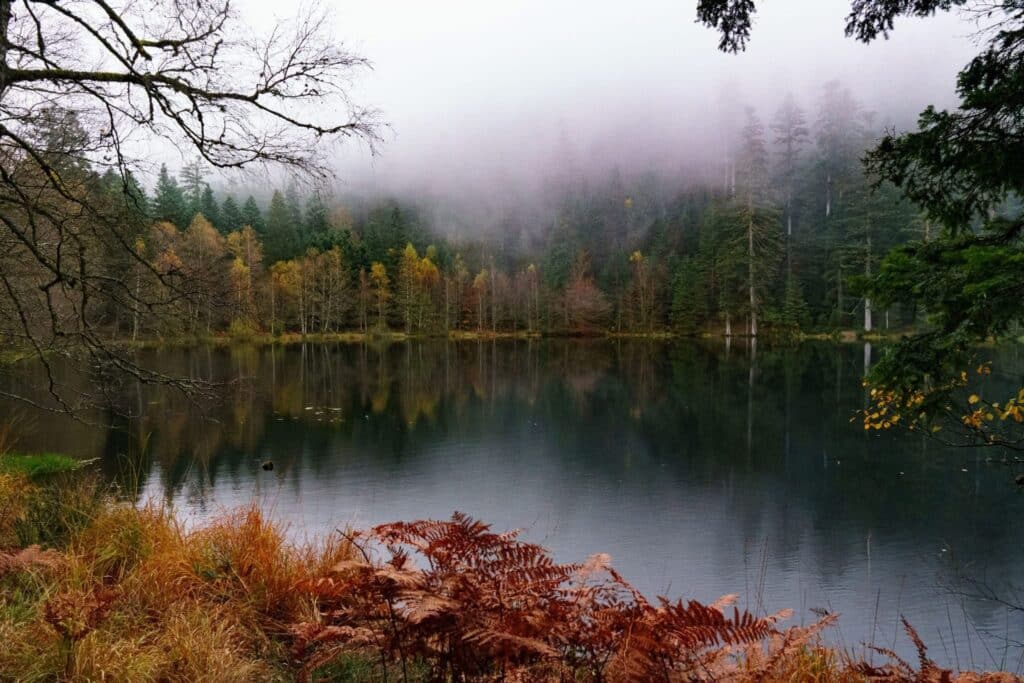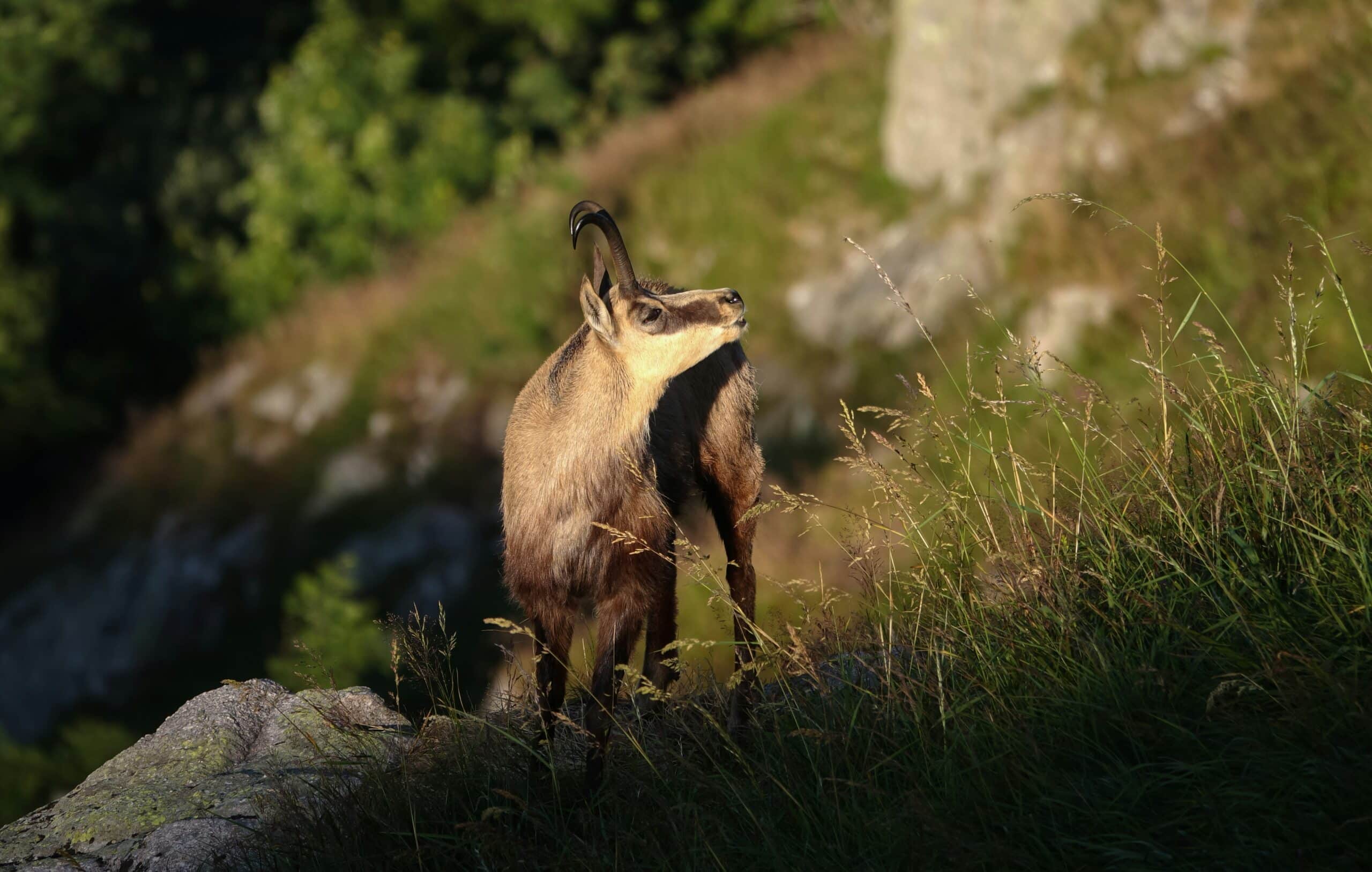Around La Maison des Vosges, a premium gîte in Ménil-de-Senones, you’ll find an abundance of trails and nature spots ideal for observing Vosges wildlife and mountain flora. Whether you’re with family, a hiking enthusiast, or a cycle tourist, the surroundings of La Maison des Vosges—our premium group lodge in Ménil-de-Senones—are full of ecological treasures waiting to be discovered. Follow our guide to explore the best observation spots, iconic species, and top tips for an unforgettable experience.
A rich biodiversity at every elevation
The Vosges mountains host several vegetation zones, each with unique flora and fauna:
- Lowlands (up to 500 m): mixed oak and beech forests, ideal for spotting woodland birds, squirrels, and foxes.
- Montane zone (500 to 1000 m): beech-fir forests, home to red deer, black woodpeckers, and salamanders.
- Subalpine zone (above 1000 m): open mountain meadows and glacial cirques with rare flowers like spring snowflakes.
Top wildlife and flora Vosges spots around La Maison des Vosges
Forests and clearings near Ménil-de-Senones
- Direct access from the gîte — perfect for morning or dusk walks
- Red deer, roe deer, foxes, and many forest birds
- Seasonal wild orchids, foxgloves, and ferns
Lake Maix
- Peaceful site just 30 minutes away
- Salamanders, frogs, brown trout, and dragonflies
- Easy, shaded trail suitable for children

Hohneck Peak
- Iconic summit — best spot for observing chamois
- Stunning views over the ridges, Alsace, and even the Alps on clear days
- Best seen at sunrise or sunset with binoculars
Mount Donon
- Mystical site between Alsace and Lorraine (25 min by car)
- Soaring raptors, chamois on the slopes, mountain wildlife
Rotenbachkopf
- On the Route des Crêtes, near the Nature Center (CINE)
- Nature events and exhibitions about local fauna
- Easy access at 1200 m altitude
Seasonal highlights of wildlife and flora Vosges
- Spring: snowflakes, snowdrops, and wild orchids
- Summer: colorful wildflower meadows and highland pastures
- Autumn: vibrant forests near Gérardmer
- Winter: magical landscapes and fresh animal tracks in the snow
Iconic species to look for
- Chamois: common in the High Vosges (Hohneck, Donon)
- Red deer: elusive but visible on forest edges, especially in autumn during rutting season
- Western capercaillie: rare and protected, requiring silence and utmost respect
Tips for responsible wildlife watching
What to bring:
- Binoculars, field guide, nature notebook
- Neutral-colored, quiet clothing
- Camera with zoom (optional)
Golden rules:
- Stay on marked trails
- Observe quietly
- Don’t approach animals
- Don’t pick wildflowers
- Take all your waste with you
Nature activities around the gîte
Themed hikes:
- Ménil-de-Senones circuit: 5 km family-friendly loop
- Malfosse Chapel & Roche Mère Henry: 11 km nature loop
- Three Abbeys Trail: nature and heritage discovery
Guided tours with the CPIE
- Fun activities for all ages: animal tracks, edible plants, ecosystem balance
- Sustainability-focused educational workshops
Nearby Wildlife Parks:
- Vit Tel Ta Nature in Vittel – free-range farm animals
- La Montagne des Lamas – a unique and fun family outing
FAQ – Wildlife observation in the Vosges
When is the best time to spot wildlife?
Spring and autumn, especially at dawn and dusk.
Do I need a guide?
Not required, but a local nature guide can greatly enrich the experience.
Is it suitable for children?
Yes! Short loops and treasure-hunt-style observation make it fun for kids.
Where to eat after a nature walk?
Local farm inns (fermes-auberges) offer traditional meals made with regional products.
La Maison des Vosges: your base for nature exploration
- Premium group lodge in Ménil-de-Senones
- Walking trails start right from the garden
- Maps, guides, and gear available
- Storage space for boots, binoculars, and nature books
- Garden and terrace with forest views
